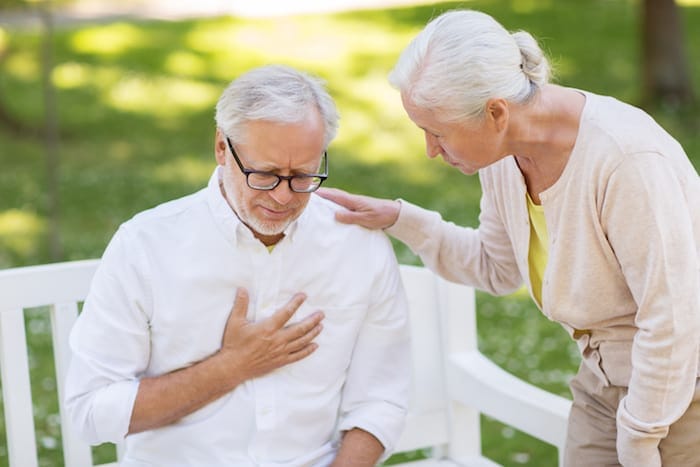
According to a report, heart disease is one of the leading causes of mortality among the elderly, affecting 37 percent of men over 65 and 26 percent of women over 65. Without taking precautionary measures, an unhealthy lifestyle often leads to high blood pressure and high cholesterol, increases the risk of stroke, heart attacks, and cardiac arrest.
Knowing this, it’s extremely important that we help seniors protect their heart health. This post will detail some of the simplest ways to do so.
1. Get Help From a Cardiac Expert
Any elderly person needs to be monitored by their healthcare professional, as well as any ongoing caretakers, to ensure their cardiac health is being protected.
Beyond any generalized recommendations, a skilled physician will be able to recommend the best course of action for any individual, including lifestyle recommendations, factors to monitor, and any medication that may be helpful.
Ideally, you also want to ensure that any medical professionals or caregivers who work with the senior have been certified in Advanced Cardiac Life Support (ACLS), allowing them to respond appropriately in the case of a cardiac emergency, saving lives.
2. Ask Seniors to Wear Smartwatch or Heart Rate Monitor
These days, there’s a lot of wearable technology that can help to monitor heart health. For instance, some smartwatches today include heart rate monitors and electrocardiograms.
The data from these devices can be incredibly useful in detecting irregular heartbeat or other abnormalities that would provide a clear indication that there may be an underlying issue, and the senior in question should be seen by a healthcare professional who can further investigate and see whether anything needs to be done.
We’re incredibly lucky to have access to this sort of technology, which wasn’t possible just a few years ago. By expanding the use of these wearables, we may be able to see the numbers of seniors experiencing a heart attack, cardiac arrest, or stroke fall over the next few years.
3. Create Scheduled Physical Activity
According to the Health in Aging Foundation, seniors who have an ideal physical activity level both protect their heart health and have reduced chances of becoming disabled. For this reason, we recommend daily scheduled physical activity for seniors.
Here are some helpful exercises to help combat cardiac health decline:
- Stretching: All exercises should start with a warm-up. Stretching before any physical activity helps with balance and provides more freedom to move.
Teach a senior to march in place before stretching to get the muscles warmed up. The limbs should never bounce, and the joints shouldn’t be locked because these actions can cause injury.
- Running and Jogging: This type of cardiovascular exercise can have an extremely positive impact on both their heart functioning (reducing the risk of a cardiac emergency), as well as helping to prevent or minimize coronary heart disease.
- Strength Training: Light weight training can also be a beneficial form of exercise to strengthen cardiac health, in addition to helping to prevent injury and keeping seniors more mobile.
Starting with fairly light weights is a good idea here. Many seniors use resistance bands as an alternative to help kickstart their strength training, as they are extremely easy to store and highly portable.

4. Senior Patient Education
While caregivers and families should be advised on how to take good care of their elderly patients, seniors should also know the warning signs of cardiac problems. By knowing so, they can report it to their loved ones and caregivers.
Here are some of the symptoms that seniors should be aware of, and seek medical attention immediately if they are experiencing:
- Feeling faint
- A sensation of light-headedness or weakness
- Difficulty catching your breath
- Feeling of indigestion or feeling full
- Vomiting or feeling nauseous
- Chest pain or pressure in the chest
- Unusual pains in the neck, back, or shoulders
- Sweating
- Irregular heartbeat
5. Keep Seniors Engaged
It’s important to keep seniors engaged in activities which not only promote cardiac health, but are also highly enjoyable. Hobbies that involve physical movement or reduce stress, such as gardening or artwork, are an excellent option.
Talking to seniors will prosper social well-being and improve mood, too. Keeping an elderly engaged improves blood pressure and breathing, improving their heart health.
Final Thoughts
We can help seniors protect their cardiac health by helping them to better monitor their health, as well as making it easier to modify their behavior towards more healthy habits. This can be done by incorporating stretching, jogging, and some form of strength training to their everyday routine.
Technology can also be helpful here, as many smartwatches are equipped with heart rate monitors or electrocardiogram (ECG) sensors that can help to uncover potential issues which can later be investigated in greater detail by a medical professional.
Most of all, making sure the seniors in your life have a doctor they trust who is looking after their heart health is extremely important. Always look into any doctor or caregiver’s background to ensure they’re qualified, have up-to-date certifications, and are trustworthy.
Throughout the year, our writers feature fresh, in-depth, and relevant information for our audience of 40,000+ healthcare leaders and professionals. As a healthcare business publication, we cover and cherish our relationship with the entire health care industry including administrators, nurses, physicians, physical therapists, pharmacists, and more. We cover a broad spectrum from hospitals to medical offices to outpatient services to eye surgery centers to university settings. We focus on rehabilitation, nursing homes, home care, hospice as well as men’s health, women’s heath, and pediatrics.







